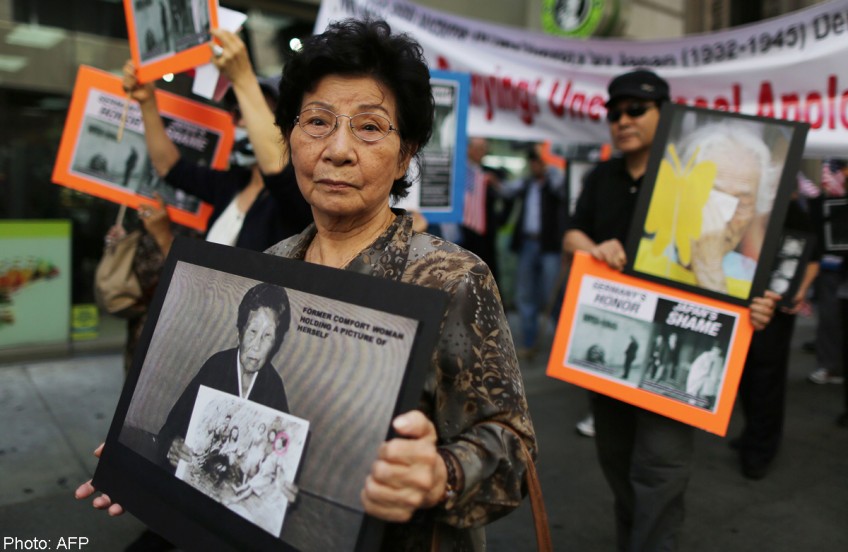Japanese academics urge 'comfort women' reckoning

TOKYO - Japanese academics have called on the conservative government to face up to its responsibility over "comfort women", echoing an open letter from leading foreign scholars urging an honest accounting for wartime wrongdoing.
Sixteen academic societies - including the Historical Science Society of Japan - said the country must "squarely" acknowledge responsibility for the system of sex slavery, in a move that could add fuel to Chinese and Korean claims of a growing official amnesia ahead of the 70th anniversary of the end of World War II.
"Those who were made 'comfort women' fell victim to unspeakable violence as sex slaves" during World War II, the joint statement from the societies, issued Monday, said.
"As recent historical studies have shown, victims were subjected not only to forced recruitment, but also to conditions of sexual slavery which violated their basic human rights," it said.
"By continuing to take the irresponsible stance of denying the facts of wartime sexual slavery in the Japanese military, certain politicians and sections of the media are essentially conveying to the rest of the world that Japan does not respect human rights," it said.
"We renew our demand for all concerned politicians and media outlets to squarely face up to the damage that Japan inflicted in the past, as well as to the victims," it concluded.
A separate open letter with similar warnings was issued earlier this month signed by several hundred academics, many from Europe and the US and including Pulitzer Prize winners.
That letter noted the system's "exploitation of young, poor, and vulnerable women in areas colonised or occupied by Japan".
Mainstream historians say around 200,000 women, mostly from Korea but also from other Asian nations, were systematically raped by Japan's imperial forces in military brothels.
Japanese conservatives, however, say no official documents prove government involvement in the system; they say the women were common prostitutes engaged in a commercial exchange.
They have also argued that memories of the survivors cannot be trusted and are highly politicised in an issue that serves as one of the main geopolitical fault lines running through East Asia.
The academics' interventions come as Prime Minister Shinzo Abe readies a formal statement to mark the 70th anniversary of the end of hostilities. All eyes are on whether he will repeat previous explicit prime ministerial apologies for Japanese violence.
Japan offered an apology to former sex slaves in 1993, the words of which remain government policy, but campaigners accuse Abe of downplaying any official role by the country or its military.
Critics say his unwillingness explicitly to accept official guilt is an attempt to whitewash the past.
However, Abe has said he stands by previous pronouncements, but questions the need for Japan to repeatedly apologise for events more than seven decades ago.